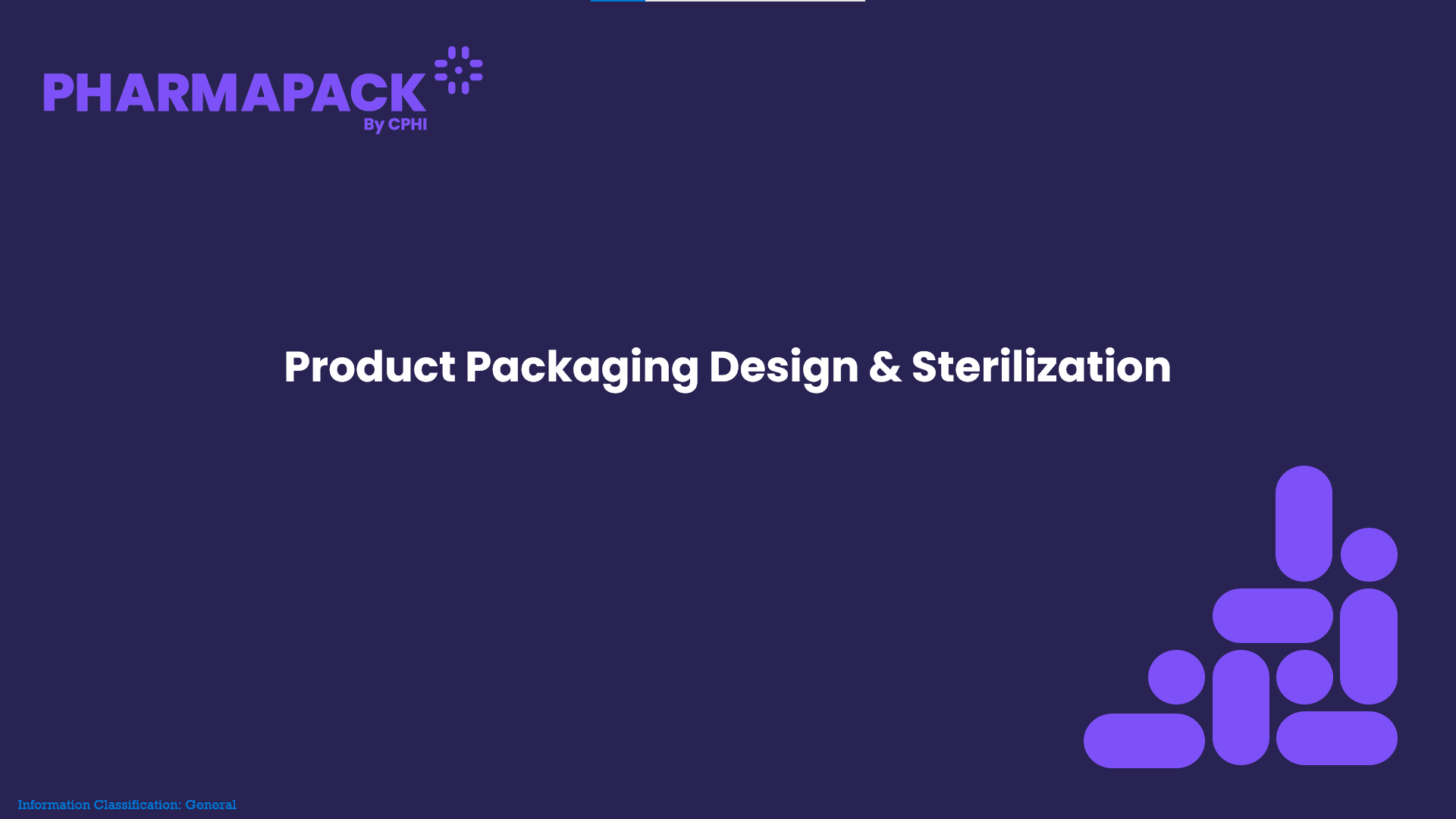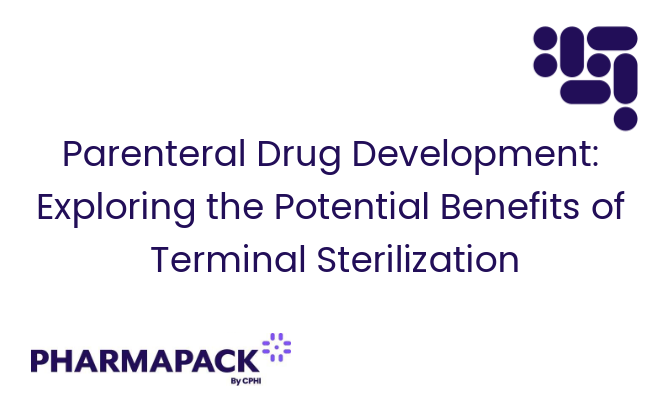Product Packaging Design & Sterilization

Packaging is an integral part of the design for pharmaceutical products and medical devices. Not only does one need to take into account the look, feel, and protective qualities of the packaging but design must be considered when determining the sterilization technology. Determining the sterilization technology early in the design process, and concurrently working with your sterilization supplier can minimize risk and optimize outcomes. This presentation will cover packaging basics including materials, methods of sterilization (Ethylene Oxide and Radiation) and also explore packaging design challenges and solutions for Ethylene Oxide process validation
Sterigenics

-
US
-
2016On CPHI since
-
3Certificates
Other Content from Sterigenics (2)
-
Webinar Prefilled Ophthalmic Syringes - New Possibilities in Terminal Sterilization
Eric Offermann and Bernd Zeiss will speak about Nitrogen Dioxide (NO2) as a new sterilization method and an alternative to EtO gas. A joint study carried out by Gerresheimer, Sterigenics and Früh, showed that NO2 is well suited to terminally sterilize prefilled ophthalmic syringes. The following 5 topics will be addressed in detail: Comparison of EtO vs. NO2 penetration into the filled syringe. Analyze gas ingress through 4 different plunger stoppers including silicone oil-free and standard rubber plungers. Scrutinize gas ingress through 2 different cap designs based on different elastomer properties. Investigate gas permeation through COP plastic barrels compared to glass. Check if the final blister has an influence on either sterilization method. The ultimate objective of this study was to offer the best syringe design and packaging paired with the most suitable sterilization modality to pharma customers. -
Webinar Parenteral Drug Development: Exploring the Potential Benefits of Terminal Sterilization
In this webinar, originally part of Pharmapack Europe 2022, S. Ross Tsakas, Pharmaceutical Segment Leader, Sterigenics discusses parenteral drug development. Parenteral drugs and the drug development lifecycle represent complexities across the multi-year, multi-million pledges made. With over 90 years of experience supporting the pharmaceutical, biotech, and medical device industries, we have identified 5 key hurdles: sterility, quality control, compliance, regulatory affairs, and routine manufacturing, we will delve into each challenge in a systematic, concise, yet compelling manner. As sterilization becomes a top-of-mind priority for clients along the entire supply chain, we stand poised to facilitate bolstering global health through strategic support initiatives that expedite products to market and help ensure their safety.
Recently Visited
Position your company at the heart of the global Pharma industry with a CPHI Online membership
-
Your products and solutions visible to thousands of visitors within the largest Pharma marketplace
-
Generate high-quality, engaged leads for your business, all year round
-
Promote your business as the industry’s thought-leader by hosting your reports, brochures and videos within your profile
-
Your company’s profile boosted at all participating CPHI events
-
An easy-to-use platform with a detailed dashboard showing your leads and performance

-file145615.png)
